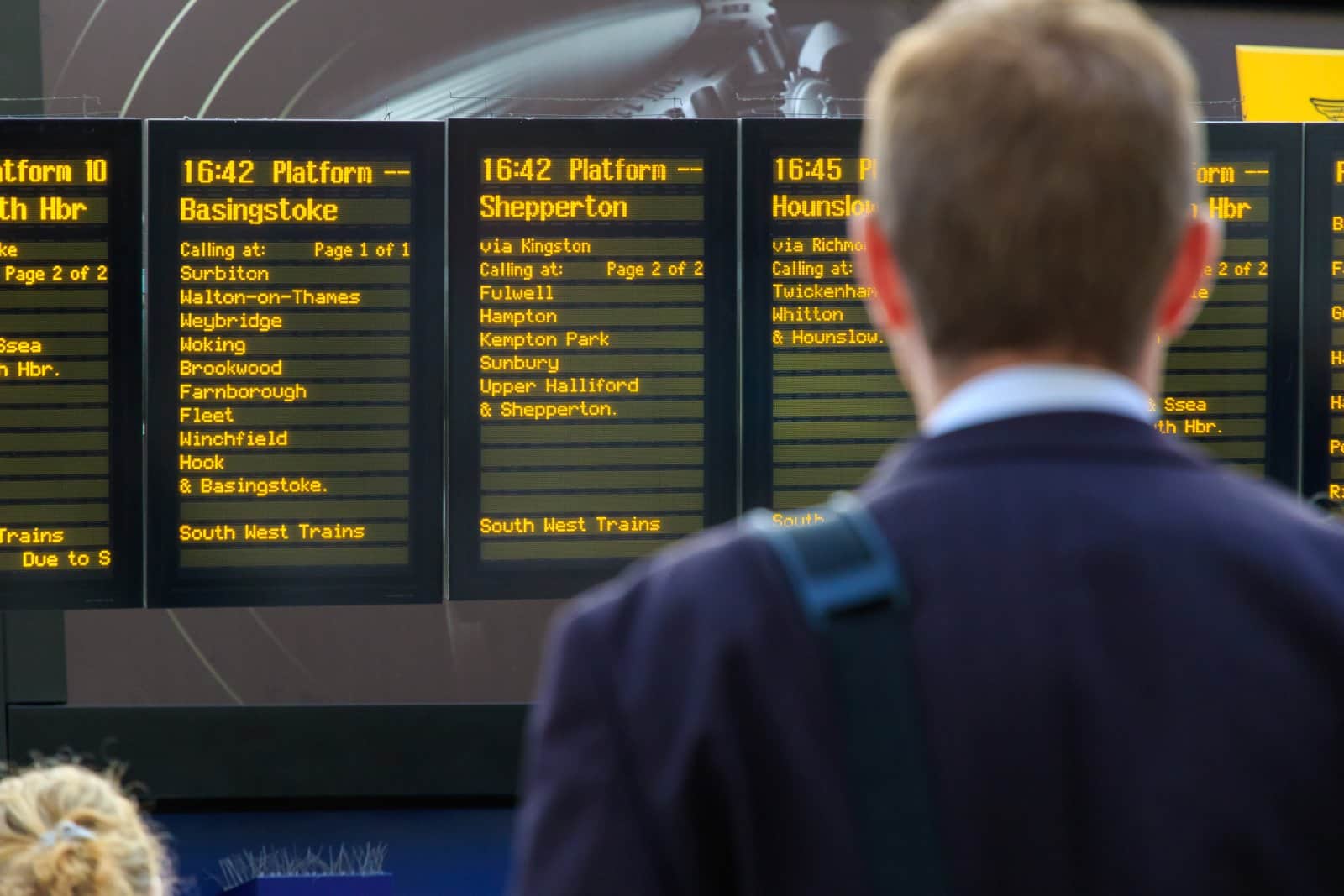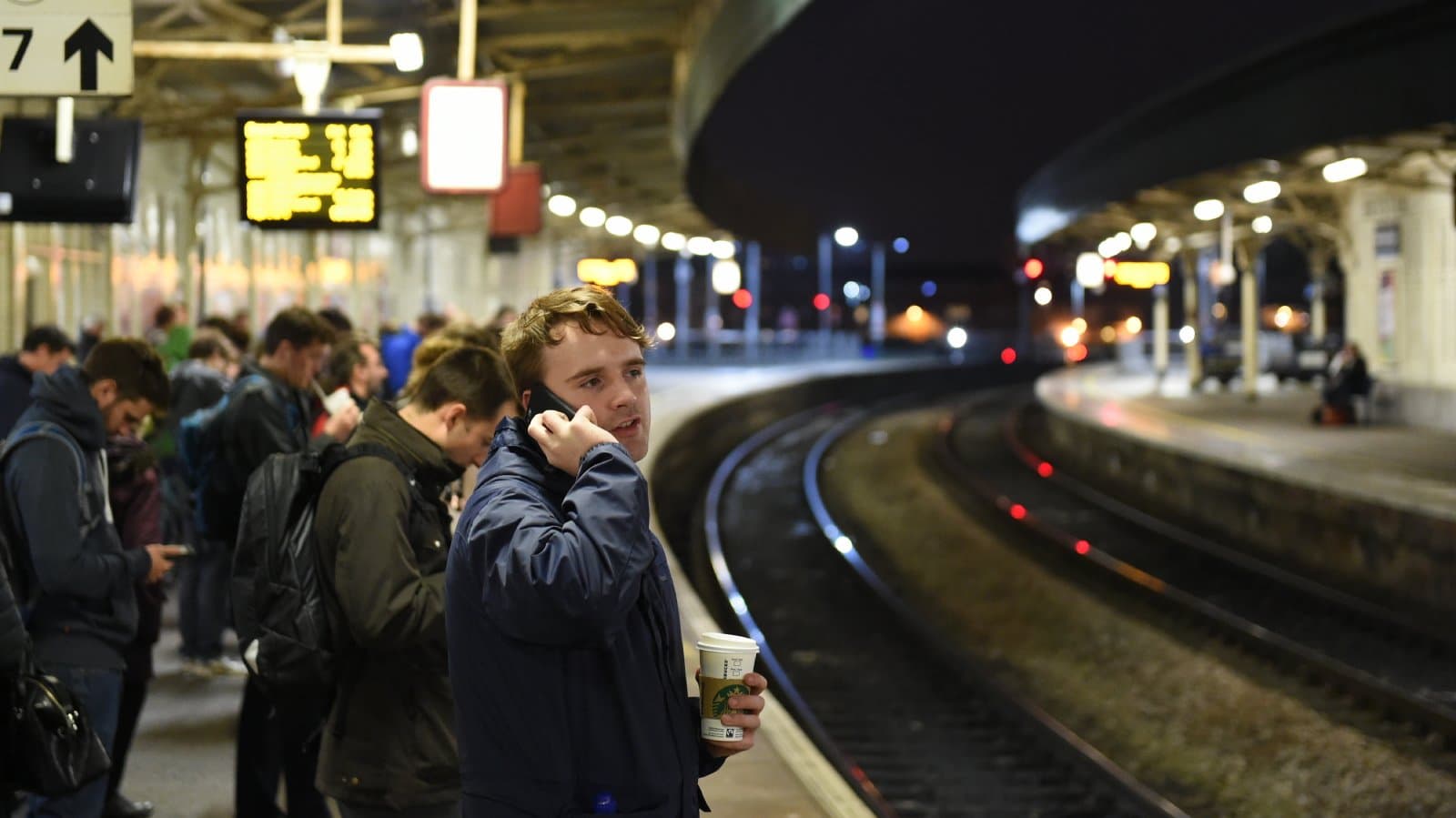When a British train is cancelled, it sparks a deeply emotional and characteristically British process in commuters. Let’s explore this journey:
1. Shock and Denial

The disbelief sets in as you stare at the departure board, convinced your eyes or the board must be wrong. “Cancelled? But it was on time a minute ago!”
2. Frustration

The sinking realization that no, it’s not a mistake. The frustration is palpable, especially since you declined a leisurely breakfast in favour of catching this specific train.
3. Bargaining

Quietly, you start negotiating with the universe or a higher power. “If this is some sort of cosmic test, I promise to start recycling more diligently if you just let the train be delayed instead of cancelled.”
4. Anger

Anger bubbles up, directed at the railway system, the weather, and the fates. You compose fiery tweets in your head, debating whether to unleash them into the world.
5. Desperation

This is when you start frantically checking alternative routes, other train lines, buses, taxis, and even contemplating the logistics of walking. Each option seems worse than the last.
6. Resignation

The heavy sigh, the slump of the shoulders. You accept your fate. Today is not your day, and this train is not your train. You text work or your appointment with the bad news, using the phrase “typical British rail.”
7. Amusement

As you wait for the next train or an alternative form of transport, you begin to find humour in the situation. Sharing stories of travel woe with fellow passengers becomes a bonding experience.
8. Relief

When you finally board a train, any train, that seems to be moving in the general direction of your intended destination, relief washes over you. It’s moving; that’s enough for now.
9. Reflection

Seated on the replacement service, you ponder the fragility of human plans and the resilience required to navigate the British rail system. It’s almost philosophical.
10. Appreciation

As your journey nears its end, you feel a surprising gratitude for the ordeal. It’s given you a story, a shared experience with strangers, and perhaps a newfound appreciation for the unpredictability of life (and British trains).
Each stage captures a facet of the British commuter psyche, blending stoicism, humour, and a deep-seated hope that tomorrow’s train might actually run on time.
More Articles Like This…
Broken Britain: 12 Reasons Behind the UK’s Decline
Say the Unsayable: 10 Occasions When Farage Spoke His Mind About Britain
The post Shock and Denial: The 10 Stages of British Grief Over a Cancelled Train first appeared on Edge Media.
Featured Image Credit: Shutterstock / Song_about_summer.
For transparency, this content was partly developed with AI assistance and carefully curated by an experienced editor to be informative and ensure accuracy.
Sarah Griffin is an experienced writer known for her incisive analysis of UK politics and human rights issues. Her work blends depth and clarity, providing insightful and often satirical commentary on the contemporary political landscape

